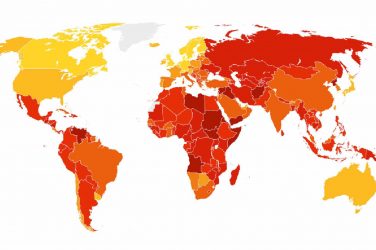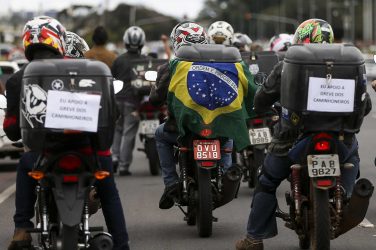Brazil has a history of going it alone. It happened with the world monopoly
on rubber production, for example. Despite a series of disasters due to the
dog-in-the manger policy, monopoly continues to be a government-blessed course
of action in the country.
In mid-January the Apple Company announced a loss
of $69 million in its latest three-month business period. What has that
got to do with Brazil? Plenty. Plenty because at the root of this
dismal result is Apple’s long standing decision to go it alone. Going
it alone means more gross profit; and, even if the tax bite is bigger,
the net profit is higher than is the case with the non-Apple computer
companies, a community of several hundred.
Brazil has an ancient and sorry story of “going it alone”. For many years, from the last century, Brazil had
been the only producer of rubber in the world. It set the prices and the terms. The money rolled in. Part of it was
mixed into the mortar used into the Teatro Amazonas in the jungle-capital of Manaus. British steamers sailing to
Pará (Belém) did not bother going to Rio or Santos. Or anywhere else in Brazil. It was Manaus or bust.
The poor rubbertappers, who owed their souls to the company store, and were paid by the kilo, began
adding rocks and other heavy debris to the rubber as the latex coagulated in big balls, in the smoke of open fires. It
was their way of getting even and a bit more of money from the big rubber barons (some of whom imported Italian
opera companies to sing “Aida” for them in the Teatro Amazonas). In the end, the workers’ sneaky revenge did
bankrupt their bloodsucking exploiters. At the same time, they torpedoed the Brazilian monopoly of rubber.
Brazilian books tell how the British “stole” 11,000 or 33,000 young plants who was counting?
and smuggled them to the Far East, where they gave birth, in the Federated Malay States and other Somerset
Maugham-tale areas under British control, to all Far East rubber plantations. The books never mentioned how rocks in the
raw rubber balls had broken and damaged plant machinery and enraged European industrialists.
In a book written more than 60 years ago, a German “investigative reporter” called Anton Zischka, told the
full story. His work, Wissenschaft bricht
Monopole [Science Breaks Monopoly], relates how those
uncounted thousands of tender seedlings of Hevea brasiliensis
travelled to England under Equatorial sun, shaded by
tarpaulins, watered several times a day, and how most wilted and died. Only a dozen and half survived. They were taken to
the famous Kew Gardens, near London, where dedicated botanists babied and nurtured them, strengthened them,
and finally helped them become trees. It was the much more mature and hardier Kew Garden trees that spawned
the millions of rubber trees of today in Malaysia and the neighboring rubber countries.
In 1951 I wrote in Rio a melancholy article “The End of a Dream: Brazil Imports Rubber from the Orient.”
It was a lesson that should be taught in all classes of “Brazilian Problems” and, in depth, in courses of
Economics. Is anybody listening? Has anybody learned anything?
Back to Apple: In spite of its tremendous success, its 4-year lead over IBM, its many spectacular
inventions, Apple has had ups and downs in the last few years. And while it gripped jealously its monopoly, in the firm
belief it had a better product and that the market would recognize it, it lost ground, the economic analysts say,
because of: greed and self-centeredness.
While Apple kept everything for itself (mostly the profit), IBM got into a community of computer
gear manufacturers, licensed its patents to competitors who introduced their own improvements. IBM used
Intel microprocessors in large scale and worked with Microsoft (which produced its first “Disk Operating
System” (DOS), and other software, then “Windows” a fabulous panoply of programs. Today Microsoft has eclipsed
most US companies and, following IBM’s example, has licensed scores of other makers to make DOS for
many computer-makers, and much more in the wide area of software.
In spite of the debacle of its Rubber Empire, Brazil still keeps to the misguided notion that monopoly is
more profitable. Yes, it is, in the short run, but Brazil is not in business for 5, 10 or 20 years. However, monopoly
has been a government-blessed policy in Brazil:
The teletypewriter, invented before First World War I, and widely used worldwide, was reserved
exclusively in Brazil for the armed services. It was only after the end of World War II that teletypewriting (both
Telex and Teletype are registered trade marks) became generally available in the country, provided by a single operator,
the Post Office. When I arrived in Washington in 1955 news from Brazil arrived at the Embassy by the
dash-and-dot Morse code…
Silkscreen printing, an art of ancient Chinese origin, was introduced in Brazil under the name Planograf by
a
company that managed to monopolize its [public domain] technique for many years, and made a mint.
By opening the country to several automakers simultaneously, President Juscelino Kubitschek tripped
a business-military cabal whose intention was to exploit the automotive industry as a monopoly.
As soon as the first small personal computers (as against the large mainframe computers sold by IBM and
other US makers) arrived, their manufacture in Brazil became “reserved to National industry” actually a
monopoly or a cartel under the flimsy excuse of
protecting the [then nonexistent] Brazilian PC industry. The result
was the manufacture of a few clunkers that were already obsolete when marketed. They were put together with
parts mostly smuggled into the country. There was no genuine computer industry, only pirated copies of hardware
and software.
Wrote a “cyber wag”: “In the end, Brazil managed the marvel of getting 30 years behind the times in 15
years of PC marketing.” Since contraband has been a flourishing national industry for many years over the
porous Brazilian borders, the “market reservation” umbrella just protected the smugglers at many levels. Many people
got rich through this gimmick.
Knowledgeable people who had legitimate reasons to travel frequently between the US and Brazil
were approached by “Market Reservation” agents and enticed to haul to Brazil all sorts of entire computing units
(CPU, keyboard, monitor, printer, cables, software). In exchange for the courtesy, the “carrier pigeons” were given
tickets, per diem, expenses, and honoraria, paid in cash when the mules contacted trusted Custom officers at
Galeão, Guarulhos and other Brazilian airports. When the “informal” computer market got saturated, plain-paper
fax machines became the main item of trade.
The EBCT, the Brazilian Post Office façade-corporation, tried to horn into the use of fax in Brazil, taking
it away from another Brazilian government provider, Telebrás. But the “Brazilian ATT” held firm and the EBCT
had to retreat.
Right now, Brazilians interested in getting onto the Internet have only one gate to deal with: Embratel,
the satellite company. Without any competition, setting its own rules and rates, Embratel has no interest in
setting regional “hubs” to save users the real time on long distance telephone lines, some of which are hardly
reliable. Embratel may charge whatever it pleases and, in theory, may refuse connections in the case of “undesirables”.
Or, as they say in Brazil “Os cães ladram e a caravana passa” [The dogs bark and the caravan goes on].











